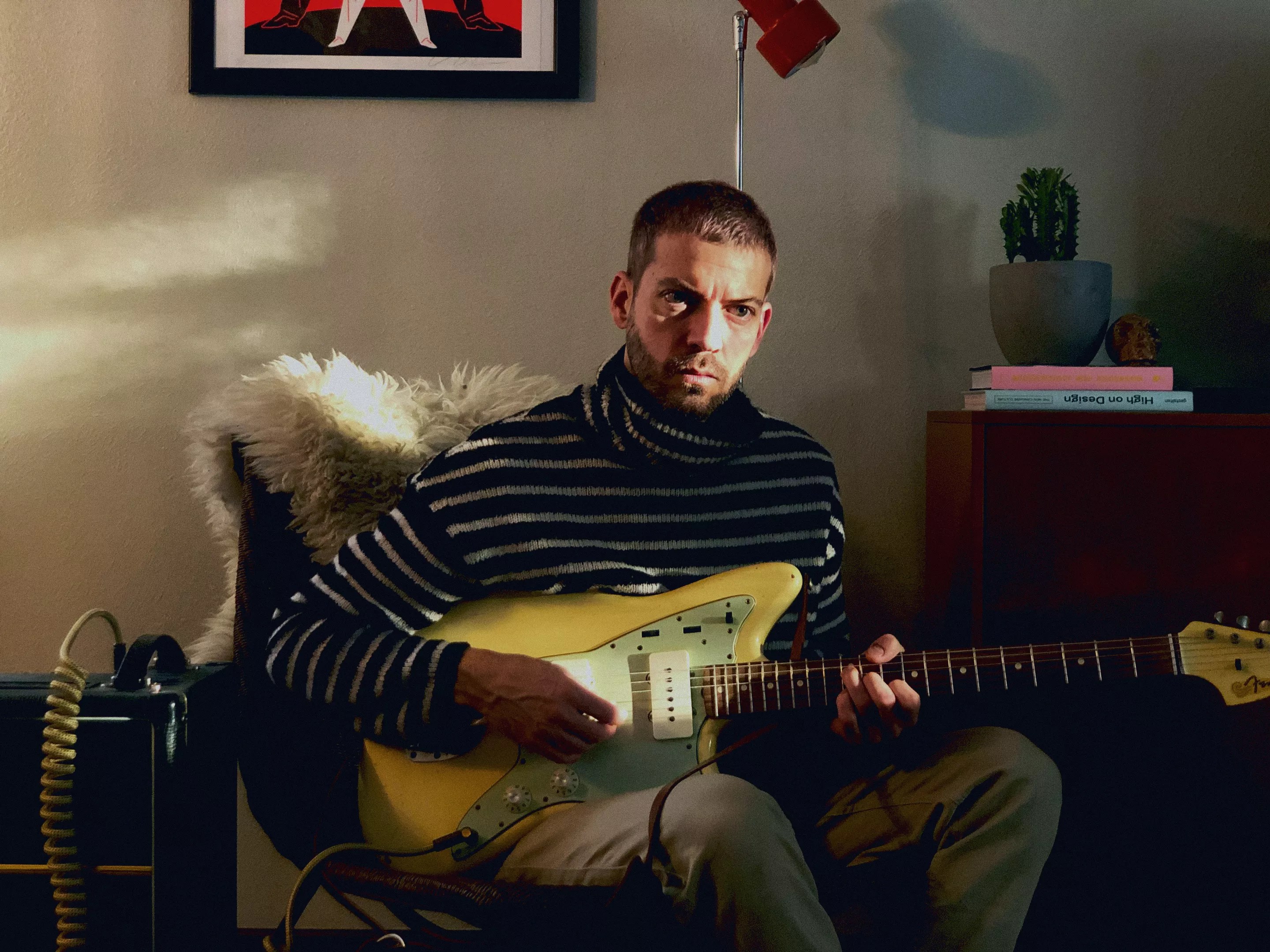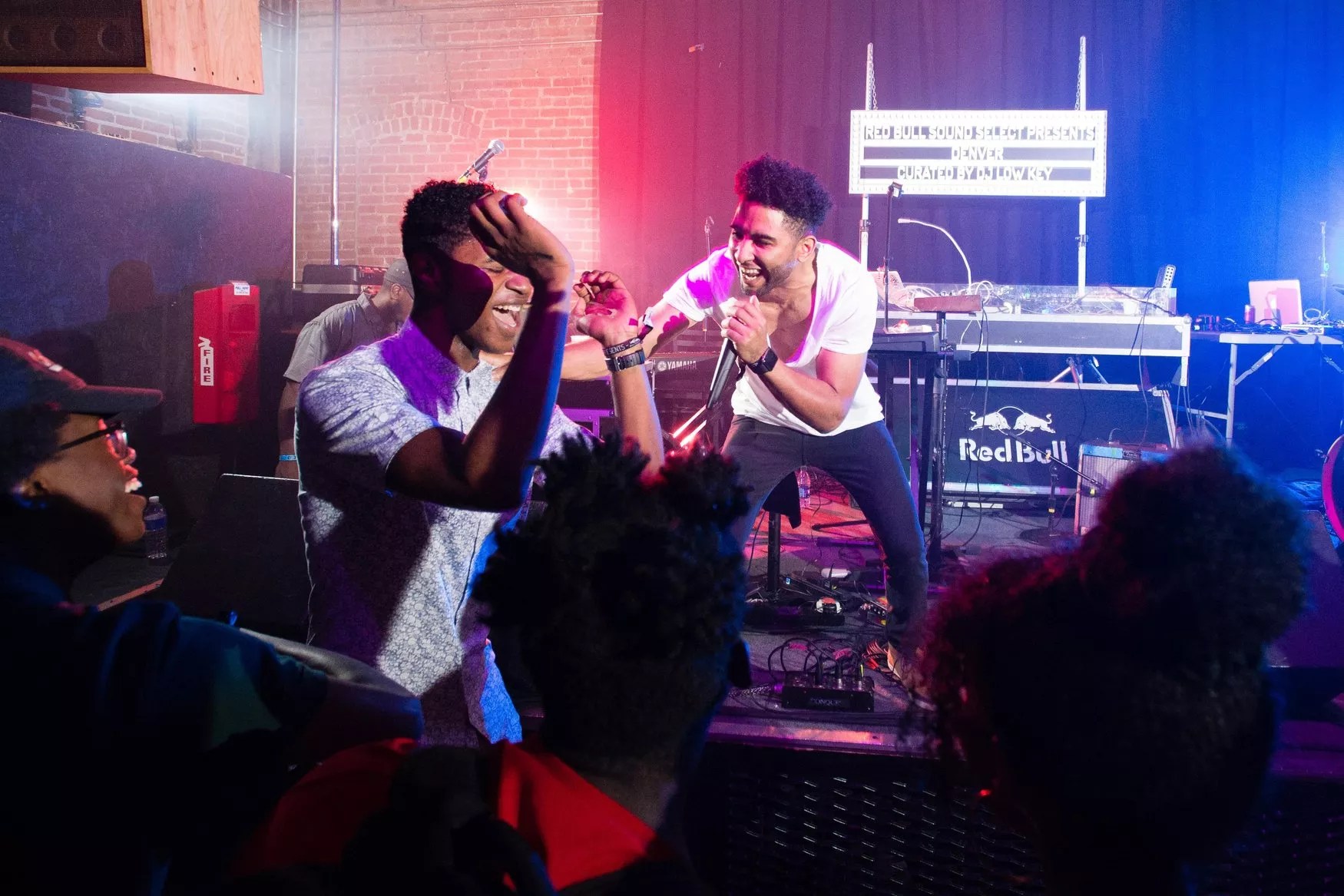
Heather Cormack

Audio By Carbonatix
Next time you watch a video – whether it’s an ad, a film or a TikTok reel – Denver-based musician and creative director Jeff Cormack wants you to pay attention to the music. “The combination of the right song and the right image can be emotionally staggering if it’s done the right way,” he says.
But although music is widely available to be streamed and used to create videos, unless content creators license the tunes correctly, their videos can be taken down.
Cormack’s own snowboard and skate videos from the late aughts were taken down because the projects used unlicensed music. That inspired him to create his new company, Audiohook, a curated collection of songs by independent artists that can be used in videos or on websites. Through subscriptions, the songs are available for licensing by individuals, small businesses or larger brands and agencies. Cormack’s overall goal for Audiohook is to help content creators elevate their videos with sound, enable musicians to connect with a wider audience, and make the licensing process simpler.
Audiohook currently has about 700 songs from twenty different artists equaling nearly 9,000 minutes of music. Cormack plans to have 36,000 minutes of music available by the end of the year. To find songs, customers can search by genre, instrumentation or mood.
“There’s a weird gray line with music licensing, especially in the era of social media,” Cormack says.
Carl Carrell, who is involved with Audiohook’s branding, marketing and content creation, has had to re-edit videos with new music because songs he’s used in the past have been muted for copyright issues. “That can be really frustrating,” he says. “Audiohook licensing is meant to give that peace of mind that you can create something and it’s not going to be taken down.”
Carrell, who performs as CRL CRRLL, has a background as a music producer, DJ and mixed-media artist. During the pandemic, he began to focus more on creating short videos for brands and social platforms, as well as connecting brands with artists. He reconnected with Cormack about Audiohook last summer, though the two had known each other for years.

Carl Carrell is involved with Audiohook’s branding, marketing and content creation.
Wilhelm Visual Works
Cormack had been toying with the idea of Audiohook for some time. In fact, he used to travel around with five hard drives filled with B-side songs that he’d made for other projects, which he would pitch for placement on different commercials and films. He calls the hard drives the “analog version of Audiohook.” The method got his music to Netflix, Teton Gravity Research and Blue Moon.
Cormack’s growth as an artist also paralleled that of his friends in music and film: When he started out, he often gave away music for free to friends working on small-budget films; now he works out payment with them. He’s gotten burned at times, and says he hopes Audiohook can help musicians get fairly compensated while growing a wider audience.
Gregory Laut is a multi-instrumentalist who plays in Little Trips and Cormack’s band South of France; he also creates theme songs for podcasts through Gold Threads Audio. He’s one of the musicians on Audiohook, and is looking forward to the exposure and being a part of the community.
In recent years, it’s become even more important for independent musicians to get their songs in films and on TV shows or commercials in order to advance their career, Laut says: “There’s so much music out there. It’s hard to sift through the noise.”
Audiohook has the potential to “expose the music to a whole new demographic,” Cormack adds. “It’s a much cooler way to discover music than having someone sell it to you.”
The effort is also meant to help build a network between content creators and musicians. These days, it’s easier to purchase loops created by artificial intelligence than music created by musicians, Cormack explains. But he hopes that Audiohook will not only educate content creators about the different kinds of music available, but also about the quality it can add and the musicians behind it. “It gives you a different view and understanding of [the music] that you may not have realized before,” Laut says.

Greg Laut is one of the musicians featured on Audiohook.
Blond on the Run
Cormack plans to use the platform to showcase new singles and albums released by the artists. Carrell, meanwhile, is excited to put together short videos that show the studios and equipment behind the scenes. “It puts the human back into what we do,” he says.
Another aspect of Audiohook that Cormack, Carrell and Laut are particularly anticipating is creating custom music for brands. It’s a different process than creating personal music, Laut explains. Custom music tends to be instrumental, and the artist’s job is to match the vibe or sound that the brand is looking for. Such auditory elements can vary from musical scores to sound effects and transitional segues.
“One of the big strengths of Audiohook is that it’s going to give smaller content creators more choice,” Laut says. The conversation can “lead to more potential collaborations down the road, where you meet eye to eye with another filmmaker to create more art that wasn’t there before.”
“I think for us, we all do music – it’s just what we do,” Carrell says. “We’re never going to stop. It’s ingrained in us. This gives us another outlet to connect with other creatives and showcase the talent that’s around us.”
While fair compensation is part of the equation, Cormack adds, “it’s really about being able to create music that our clients are going to be excited about using and getting our artists some work.”
Learn more about Audiohook on its website.